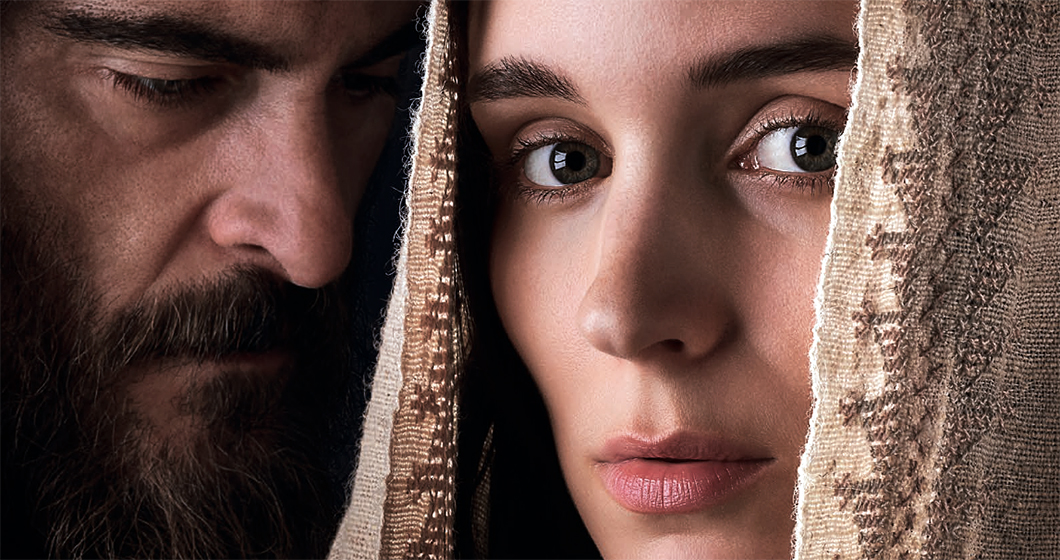Mary Magdalene is a movie for nobody. While non-believers won’t find anything of interest from historical, philosophical or cinematic perspective, it’s such a dull film that I doubt even believers will get much out of it.
It’s a shame. Biblical movies have gotten a reputation for being dull over the years and they don’t have to be. It’s a bunch of very interesting figures in a very interesting place in a very interesting time, regardless of the viewer’s feelings about their religious significance. Darren Aronoksy’s Noah showed that you can do a great, weird film with the most familiar story in the book. And this, when it was first announced, seemed like it could tap into that same energy. After all, Mary Magdalene is one of those figures around whom lots of interesting ideas have grown up.
There’s the misconception that she was a prostitute (that comes from a Pope in the 6th century) and that she wrote gospels that were edited out, either by Peter or later scholars. There are wilder theories that she was a member of a Hebrew Royal Family or even the crazy conspiracy theories that she bore Jesus’ children who were then secreted away. The Catholic Church, in 2016, confirmed that she was one of the apostles, equal in rank to Paul, Peter or Matthew. This seems like a good time and a place for, as the tagline promises for ‘her story to be told.’
Only it isn’t. It’s not her story at all. It’s Jesus’. Aside from a few scenes introducing her in her fishing village, where she’s depicted as the Orthodox Hebrew version of a wild child, it’s her time with Jesus and the apostles. It’s a straight forward depiction of Jesus as prophet, with his apostles as true believers with a practical edge: they’re trying to figure out how to turn themselves from a fringe group to a major movement. Mary’s contribution is to encourage Jesus to preach to women (who were excluded in the intensely patriarchal ancient world) and, eventually, to encourage a more humanistic, good deed based approach to belief. The story ends shortly after Jesus’ does, though with something that feels like a sequel hook about Mary continuing to preach.
It’s unlikely to shake up anyone’s ideas about who any of these people are, aside from making Peter’s misogyny a bit more obvious and having a surprisingly sympathetic take on Judas, depicting him as a true believer trying to force Jesus’ hand, driven by impatience and grief.
It’s not a gritty or ironic or philosophical take on the story. It’s very straightforward and sincere. There’s nothing wrong with that, but even for people for whom this is more than just a film, it could be a much better film.
It’s not much to look at. Despite being filmed in some obviously amazing locations the photography is flat, with nothing popping out. Director Garth Davis is unable to use his limited palette in any way except to shoot it straight on. Yes, what’s being depicted is only a few colours (which was also a directorial choice) but black and white films had decades of interesting compositions.
By the same token, he only uses three shots in the entire movie. Feel free to do your own joke about a trinity. There’s the close-up of the face and shoulders, the wide shot of a group walking (if you really like movies where people walk a lot, you are in for a treat) and the occasional shot of a crowd. The spatial relationships are left to the imagination, since the director has an aversion to ever showing more than one thing in the shot at the same time. Simple things like characters talking to each other are only ever done as alternating pairs of close ups. Larger groups are depicted the same way. From the vast toolbox of film making, Davis chooses three things.
Then there’s the dialogue. It’s all heavy, short sentences that are presumed to have great weight. The problem is that the film’s visual story telling is non-existent. Between the uninteresting photography, sparse dialogue and long silences, it feels like the recreation footage of a documentary series, just with a bizarrely excellent cast that never quite chooses their accent. I kept expecting some serious academic or scholar to start speaking in that distinctive, weighty voice they use to explain all the parts that the movie forgot to film.
If you’re after an interesting take on a historical figure, this film will not give you that. If this is a story of enormous significance to you, there isn’t much to enjoy either. Honestly, I’m not sure who this movie is for. Maybe one day a documentary crew will find it, until then…
3/10
Reviewed at Palace Electric Cinemas.






